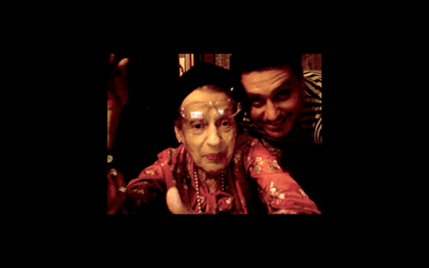"Flora no es un canto a la vida" (2018), de Iair Said: retratos de presente, signaturas de pasado
Keywords:
Portrait, Judaism, Humor, Afterlife, Argentine film, Contemporary FilmAbstract
In this article, I analyze the film Flora no es un canto a la vida (2018) by Iair Said, exploring the relationship between portrait and self-portrait to highlight a deeper contact zone between the two protagonists of the film. As the director and protagonist develops his 'character,' he simultaneously composes a portrait of his great-aunt Flora, 'a ninety-year-old single woman who has wanted to die since she was born.' In a process of fictionalization characteristic of performative documentary, the film reveals the persistence of a tradition: that of the Jewish diaspora, or more specifically, that of the Jewish humor of the diaspora, and its continuities, or better yet, its afterlife in contemporary Argentine cinema.
Downloads

Downloads
Published
How to Cite
Issue
Section
License
Copyright (c) 2025 Débora Kantor

This work is licensed under a Creative Commons Attribution-NonCommercial-NoDerivatives 4.0 International License.
Imagofagia adhiere a las diferentes iniciativas que promueven el acceso libre al conocimiento, por lo que todos los contenidos de la revista son de acceso libre y gratuito según la política de Creative-Commons de tipo Reconocimiento-NoComercial-SinObraDerivada 4.0.
Los autores conservarán la propiedad intelectual de los trabajos y concederán a Imagofagia el derecho de su primera publicación bajo las condiciones de dicha política. El envío de cualquier colaboración a la revista implica la aceptación de lo establecido en este documento y la autorización al Comité Editorial para incluirlo en su página electrónica, reimpresiones, colecciones y en cualquier otro medio que permita lograr una mayor y mejor difusión de la publicación.
Luego de su publicación en Imagofagia, los autores podrán republicar sus trabajos o distribuirlos libremente en forma electrónica mencionando su aparición inicial en esta revista.




















